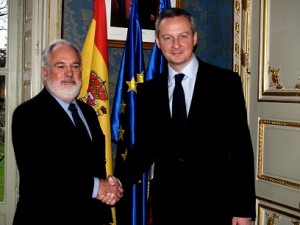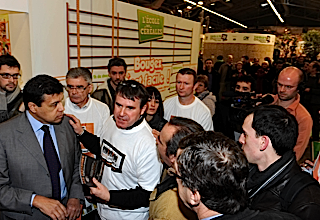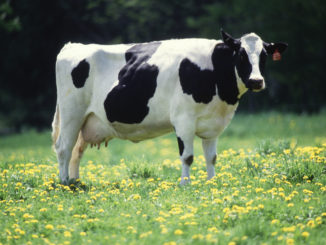As EU Commissioner for Agriculture and Rural Development, Dacian Cioloş continues his tour of European capitals to gauge the position of different Member States, Spain and France, among the top recipients of the CAP budget, announce a common position on the CAP. The announcement joins an emerging series: The CAP, France and ‘please insert EU Member State name here’
The announcement came after Spanish Minister of Agriculture, Food and Environment Miguel Arias Cañete, and his French counterpart, Bruno Le Maire met in Paris on 14th February. It is clear the two countries wish to form alliances in order to negotiate their position. Indeed this is exactly what Arias Cañete has stated after his visit to Paris and Lisbon:
“I have noted that there is a bloc of countries with similar interests, that can allow a solid basis for negotiations, with more weight, in the last stage of the community negotiations.”
The main points of their joint statement addressing the Commission’s proposals are:
- It is essential to keep the CAP budget at the level of the commitments made at the final stage of the current programme. Spain and France will not accept a budget that does not ensure the stability of the CAP.
- The reform of the CAP must allow the strengthening of the bargaining power of producers, while adapting the European legislation on competition, in light of the negotiations on the “milk package“. Moreover, the CAP must keep the instruments of regulation and production of some specialised sectors that have proven effective. France and Spain celebrate the establishment of a high level group on viticulture and ask the maintenance of the rights for planting beyond 2015. On the other hand, sugar quotas should be extended until 2020.
- The Commission’s proposals for “greening” are not suited to the challenges facing European agriculture. Both Ministers referred to the reservations raised by the EU Council in relation to the percentages proposed by the Commission, urging for continued discussion, particularly on the definitions of the greening criteria.
- The direct distribution of aid between Member States should be more equitable, but also needs to take into account the economic diversity of countries, as well as the balance between the two pillars. The progressive convergence of direct payments within the EU must consider the diversity of Europe’s farms, leaving ample scope for subsidiarity to Member States for the implementation of the modalities. In that sense, Spain and France consider that the Commission proposals concerning the extent of the first stage (from 2014, the direct income support will not be based on historical references but the value of entitlements should converge at national or regional level towards a uniform value), the rhythm of this process and the aid allocation on the totality of the surfaces are not acceptable.
- Member States should maintain the possibility of granting aid targeted to very specific sectors or fragile regions
- Finally, the two Ministers stressed the importance of effective rural development. They highlighted the strategic importance of employment, irrigation and the fight against climate change for the future of agricultural production. Existing assurance systems should be recognised. In addition there is a need to further develop the Commission’s proposal on the establishment of simple disadvantaged areas, in order to better integrate the so-called handicaps of certain territories.
The position of the Spanish government has been criticised by environmental NGOs, that claim “that the government’s position, as well as of the autonomous regions and the agricultural sector defends the interests of only a few, while maintaining a proven detrimental model for the extensive farmers and ranchers and the environment.” WWF and SEO/Birdlife in Spain “call upon the Minister to reconsider its position, opting for a CAP that is truly sustainable, intelligent and inclusive, that fits with the Spanish reality.”
See a recent ARC story on a similar meeting between Le Maire and the Italian Agricultural Minister at the end of January.






